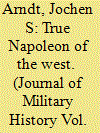|
|
|
Sort Order |
|
|
|
Items / Page
|
|
|
|
|
|
|
| Srl | Item |
| 1 |
ID:
168852


|
|
|
|
|
| Summary/Abstract |
In modern-day South Africa, both the state and the wider society assume that people whose mother tongue is Zulu are Zulus. How can we explain this close relationship between language and ethnic identity? This essay rejects the primordialist answer, which holds that language and ethnic identity are naturally occurring as well as naturally related phenomena. Instead, it argues that a language-based Zulu identity emerged due to a complex historical process involving human decision-making about what constitutes the Zulu language and who speaks it. A series of stakeholders, notably American missionaries, created the standard, literary Zulu language between 1835 and 1930. At the same time, these stakeholders designed institutions and practices that socialized generations of people to the idea that this standard, literary Zulu language represented their mother tongue. The most important institutions were mission and state-led primary education programs in which standard, literary Zulu functioned as a mandatory language subject between the 1850s and the 1990s. As a language-based ethnic identity, Zuluness is, thus, the product of a historical process that involved language standardization and language education. It is a modern identity that is essentially different from its precolonial antecedents.
|
|
|
|
|
|
|
|
|
|
|
|
|
|
|
|
| 2 |
ID:
100728


|
|
|
|
|
| Publication |
2010.
|
| Summary/Abstract |
Between 1834 and 1853 the British colonial army fought three wars with the Xhosa peoples who resided on the eastern frontier of the Cape Colony of South Africa. Based on the published and unpublished diaries, journals, correspondence, and memoirs of British soldiers who served in these wars, this paper examines how these wartime experiences led to the creation of a military knowledge system of the Xhosa that stereotyped them as treacherous savages and merciless barbarians. Further, this essay argues that these stereotypes played a crucial role in the conquest of the Xhosa by justifying policies of dispossession and subjugation in the name of colonial security, and allowing British soldiers to conduct unlimited warfare against them. In this regard, the British military knowledge system of the Xhosa casts long shadows of violence and distrust over the history of South Africa.
|
|
|
|
|
|
|
|
|
|
|
|
|
|
|
|
| 3 |
ID:
116783


|
|
|
|
|
| Publication |
2012.
|
| Summary/Abstract |
Combined-arms combat divisions emerged fully during the French Revolutionary Wars in the late 1700s. This paper explores how U.S. General Winfield Scott's Mexico City campaign (9 March-14 September 1847) contributed to this military innovation's transatlantic diffusion. It argues that Scott organized the Army of Invasion of Mexico according to the French system of combined-arms divisions, enabling him to replicate the Napoleonic era's aggressive operational tactics. In this way, Scott nullified the Mexican forces' numerical superiority, overcame their fortified defensive positions, and gradually annihilated them, strengthening his claim to be the "Napoleon of the West" and demonstrating that combined-arms divisions were appropriate for the American way of war.
|
|
|
|
|
|
|
|
|
|
|
|
|
|
|
|
|
|
|
|
|